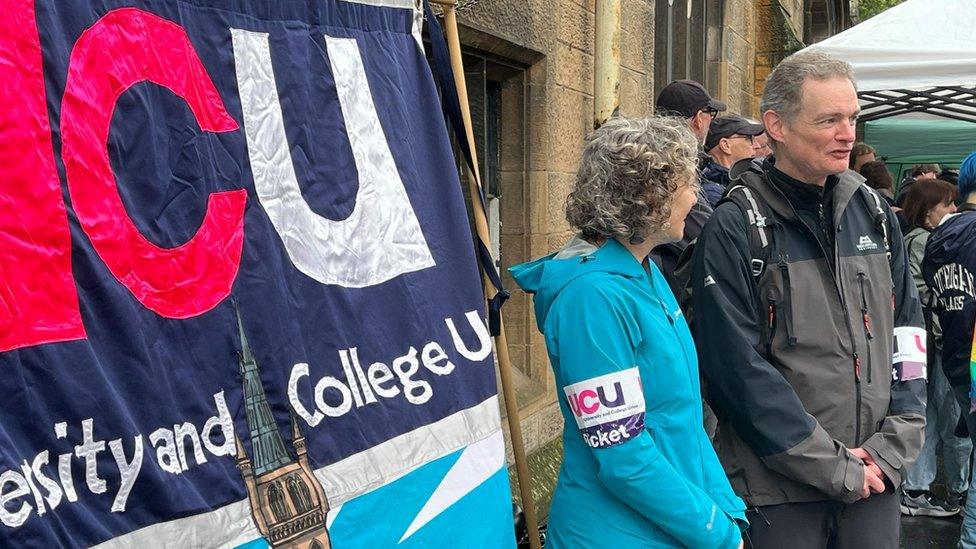University staff strike disrupts freshers' week
- Published
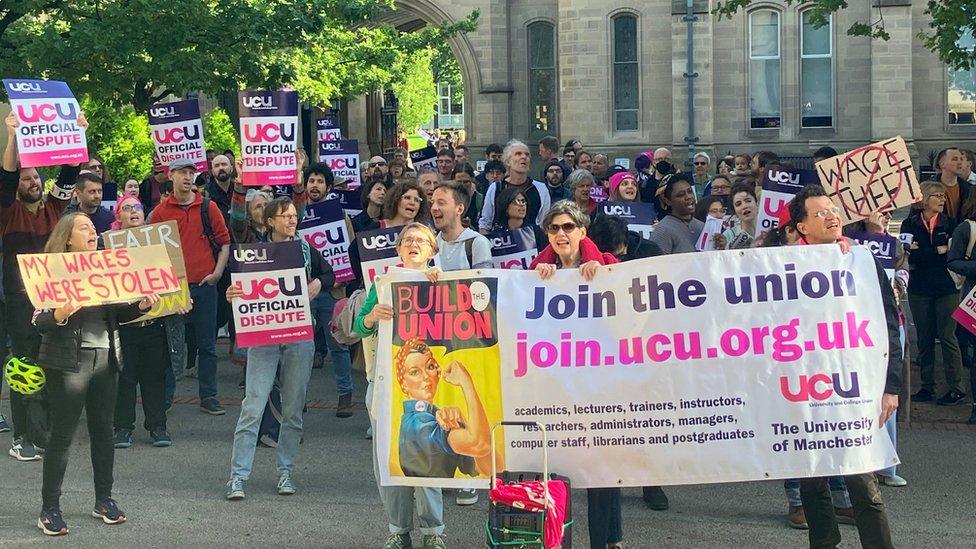
Students joined staff on the picket line at the University of Manchester on Monday, the first of a five-day strike
Thousands of students face disruption as staff at more than 40 universities join picket lines across the UK.
It is part of a long-running dispute by members of the University and College Union (UCU) over pay and conditions.
The action will be smaller than planned as dozens of branches called off action following constructive talks with their universities.
The Universities and Colleges Employers Association (UCEA) says this year's pay deal is the highest offer in 20 years.
But the union is calling for an above-inflation pay rise and an end to insecure contracts.
UCU members at 36 universities are striking for five days, external, while staff will strike for one day at a further 11 institutions.
The union says more than 20,000 staff will be taking part in the strikes which will coincide with Freshers' Week for many first-year students. It says the action is now targeted "at the very worst employers".
It follows strikes at five universities in Scotland last week.
The strikes this week were originally due to take place at more than 140 universities, according to the UCU.
However, many UCU branches withdrew after staff voted to do so following talks with their individual universities.
The marking boycott, which began in April and meant some students graduated without their final mark, has now ended.
The UCEA has urged staff who were involved to "prioritise marking for those remaining students who have still not received the necessary results to graduate in 2023-24".
It said most universities hope to have all students' work graded by early October at the latest.
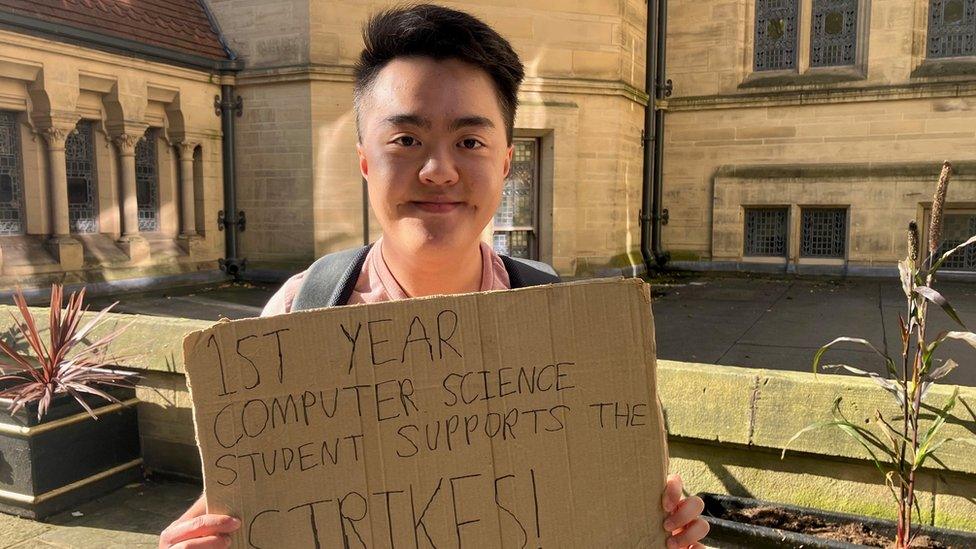
First-year student Julian joined the picket line in support of the strike, on Monday, at the University of Manchester
University of Manchester first year Julian, 19, decided to join the picket line rather than attend lectures.
Staff are striking to improve teaching - not just over their working conditions, the computer-science student says.
"If they are treated fairly, my quality of teaching will improve," he adds.
Fellow first year Sarah first became aware of the strikes only when she saw the picket line on Monday morning.
As an international student, her fees are higher - and if her lectures are affected, it would be "really annoying", she says.
But she is not too worried as the strike is just to raise awareness and will not affect her schedule "too much", the biomedical-science student adds.

International student Sarah, 18, hopes her lectures will be unaffected
Bee Hughes, 34, a senior lecturer at Liverpool John Moores University and UCU branch chair, is on the picket lines asking for better pay and an end to casual contracts, which they were on for eight years.
"Between contracts you might not have access to the library so you don't even have access to academic texts that you need to do the work and you can't plan," they said.
"Usually you don't even know if you're going to have a contract until the last minute. You can't plan your future."
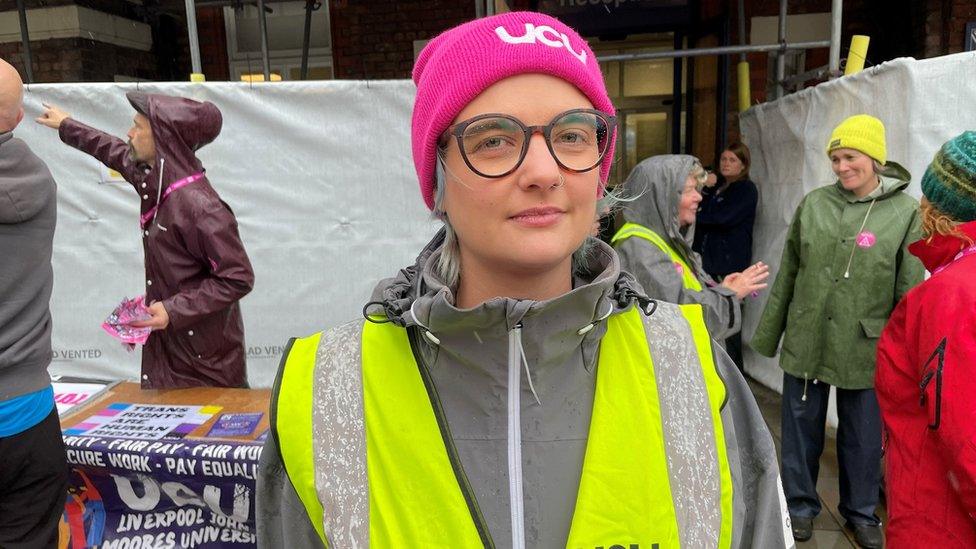
Senior lecturer Bee Hughes was on casual contracts for eight years before finally receiving a permanent position
Dr Hughes is now able to save for the first time since gaining a permanent position.
"Starting a family hasn't even been a consideration. There has been lots of points over the eight years where I was on the brink of giving up," they said.
"We've basically been asked to do more and more for less and less money and it's really unsustainable."
The UCEA, which acts for the employers in the dispute, says its improved pay deal for 2023-24, worth between 5% and 8%, was the highest offer of its kind in nearly 20 years.
UCEA chief executive Raj Jethwa said universities were under "very difficult financial circumstances so this was at the very edge of what the sector could afford".
He said they wanted to work with the unions to make sure the other issues that were vital to employers and staff were dealt with.
Mr Jethwa said it was "positive news" that some strikes had been called off but any student still affected was "one too many".
He said he hoped an independent review of the sector's finances by both employers and the unions can help to reduce any further industrial action.
However, UCU says this year's pay offer was a pay cut in real terms.
Since February 2018, there has been industrial action over two disputes - pensions as well as pay and working conditions.
'Further disruption'
But the UCU is confident the pension dispute will be resolved, with benefits restored.
It has now begun reballoting members to renew its mandate to strike over pay and working conditions, which is due to expire at the beginning of October. If accepted, strike action could continue into 2024.
UCU general secretary Jo Grady said "renewing our mandate and keeping the pressure on is the way we will win this dispute".
She said the strike action was "a reminder to all employers that if you behave egregiously, you will face further disruption".
Some contributors asked that their surnames be withheld.

Have you been affected by the issues raised in this story? Please get in touch by emailing haveyoursay@bbc.co.uk, external.
Please include a contact number if you are willing to speak to a BBC journalist. You can also get in touch in the following ways:
WhatsApp: +44 7756 165803
Tweet: @BBC_HaveYourSay, external
Please read our terms & conditions and privacy policy
If you are reading this page and can't see the form you will need to visit the mobile version of the BBC website to submit your question or comment or you can email us at HaveYourSay@bbc.co.uk, external. Please include your name, age and location with any submission.
- Published25 September 2023

- Published20 October 2023
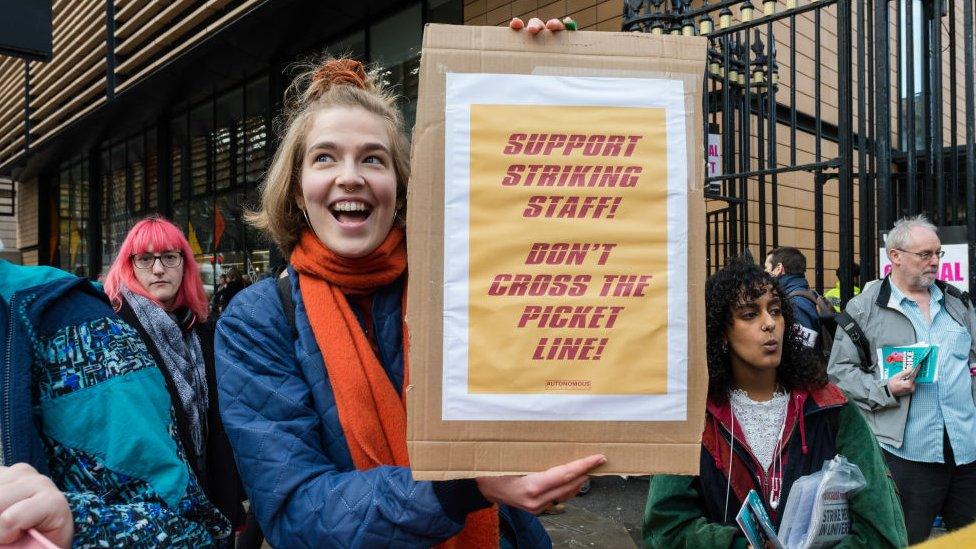
- Published13 August 2023
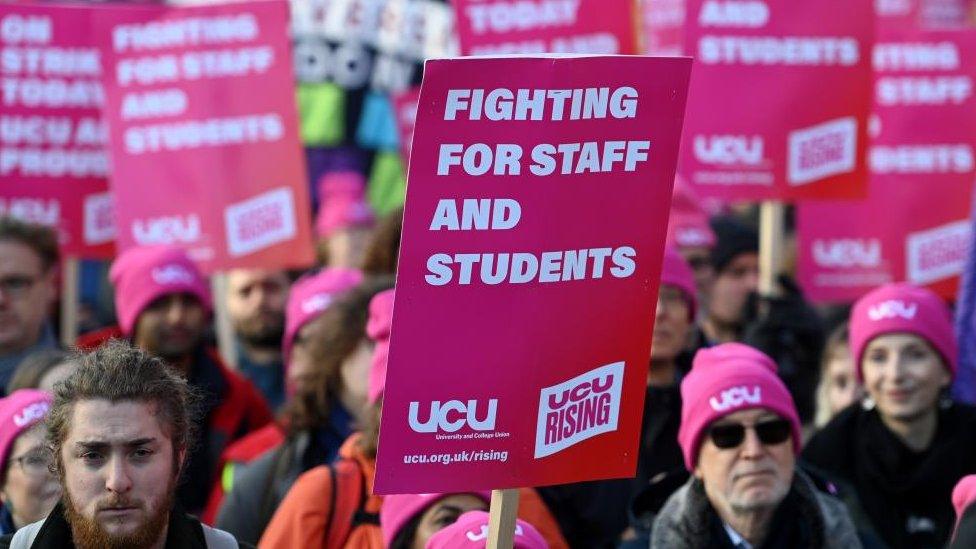
- Published18 September 2023
